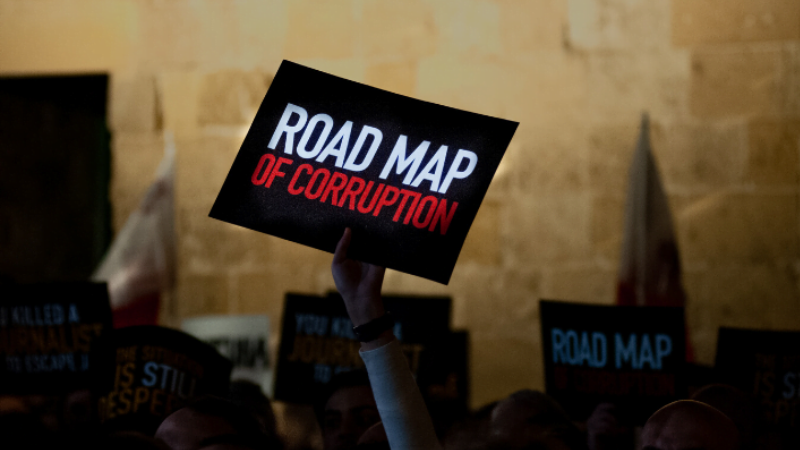Investigations by the Permanent Commission Against Corruption, tasked with independently investigating public officials suspected of corruption, have resulted in just one court prosecution since being established in 1988, raising questions about its effectiveness and resourcing.
Out of hundreds of independent cases investigated by the commission, only one, dating from 1994 against former minister Lorry Sant, resulted in a court prosecution.
The three-person commission, currently led by Judge Lawrence Quintano, has recently acquitted disgraced former prime minister Joseph Muscat, former parliamentary secretary Michael Farrugia and ministers Owen Bonnici and Julia Farrugia Portelli from multiple corruption claims.
Muscat and Farrugia’s connections to businessmen allegedly involved in the murder of journalist Daphne Caruana Galizia were investigated by the PCAC following a complaint by independent politician Arnold Cassola.
The investigation found no corruption in the case of Fenech gifting Muscat bottles of Petrus wine and a Bulgari watch. The PCAC also could not prove any corruption in a meeting between Fenech and Farrugia ahead of the rezoning of the Mriehel industrial area accommodating the Quad Towers project.
Following the commission’s conclusion, Muscat welcomed it on social media and cast doubt on an ongoing magisterial inquiry into his finances following the Vitals-Steward hospitals deal.
A report tabled in parliament this week showed how the commission similarly could not prove beyond doubt any wrongdoing on Bonnici and Farrugia Portelli’s part following a French TV sting alleging corruption in the government’s scheme for selling Maltese passports.
Reacting to the PCAC’s conclusions, civil society NGO Repubblika President Robert Aquilina said in a Facebook post on Sunday the PCAC “is neither given the necessary tools or time to conduct its investigations at the level of the courts,” noting the “integrity and competence” of the commission’s three members.
In comments to The Shift, the head of the commission, Judge Quintano, said, “It is very difficult to prove the crime of corruption,” noting how in “criminal proceedings, the level of proof must be beyond reasonable doubt.”
Asked for a breakdown of the number of PCAC investigations that have led to criminal prosecutions on corruption charges, Quintano said the commission is legally bound to “keep all the information involving the investigations secret.”
A ten-year-old report by the Commission for a Holistic Reform in the Field of Justice is one of the only publicly available documents on the number of investigations carried out by the commission.
Published in November 2013, the report, led by former European Court of Human Rights Judge Dr Giovanni Bonello, noted that the PCAC had conducted over 425 investigations “with little to no success given there did not result in prosecutions by the police on the basis of its reports.”
The PCAC currently comprises former Judge Quintano, former judge Philip Magri, and former police commissioner John Rizzo.













The PCAC needs to get serious and receive more support/resources with their investigations to point out corruption ‘beyond a reasonable doubt’. For example, if the appeals court in the VGH-SHC has proved the existence of fraud and collusion in the hospitals deal, can’t the PCAC observe how senior officials and the police force are involved in massive corruption?
It is not a question of resources but of willingness. Does the Head of the PCAC believe that the Court of Appeal in the VGH-SHC case found proof of corruption simply on reasonable grounds?